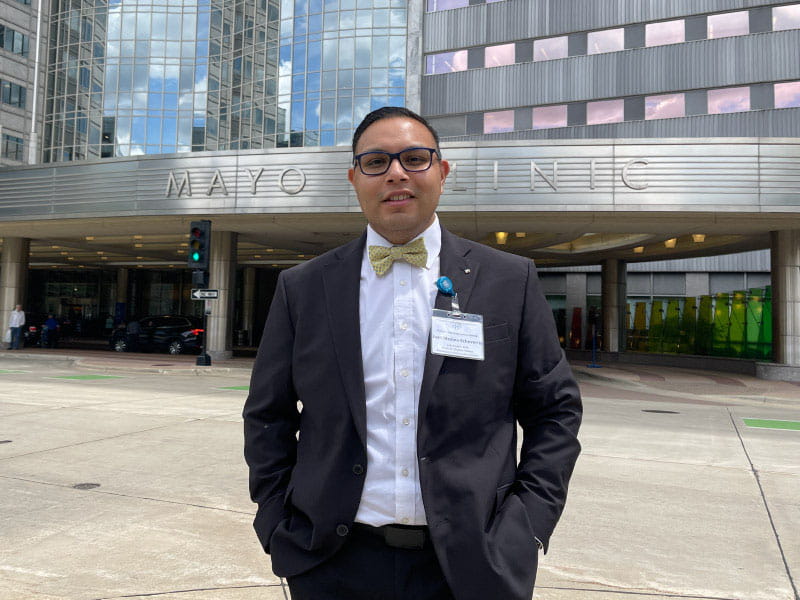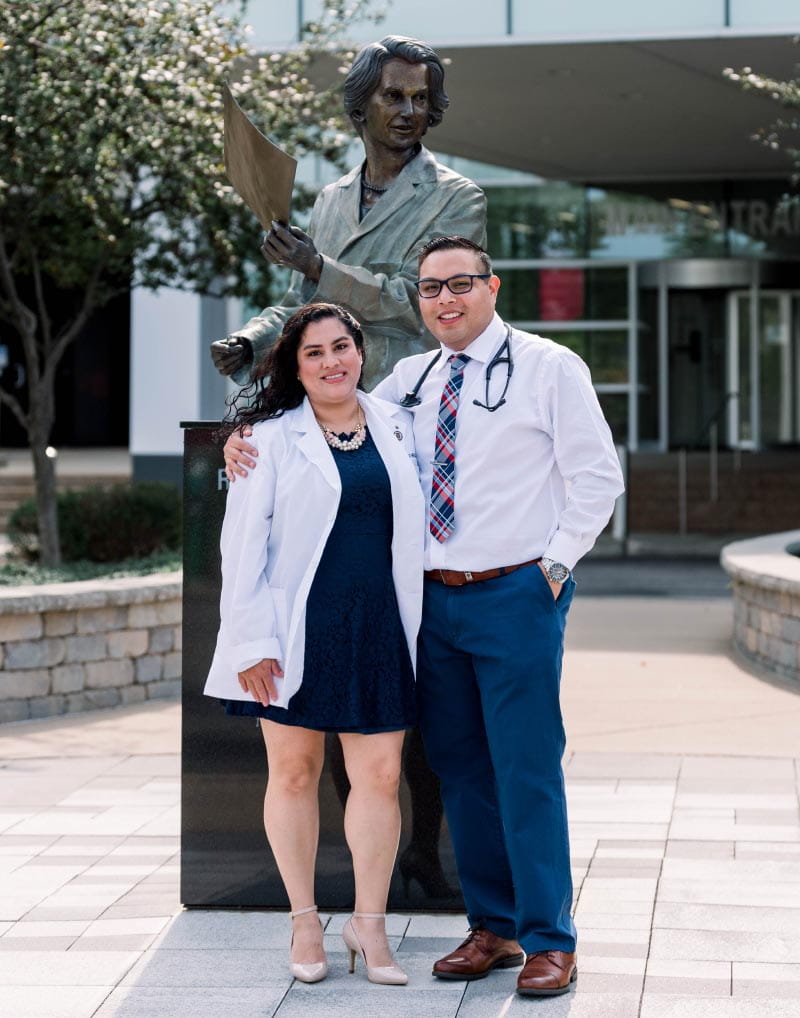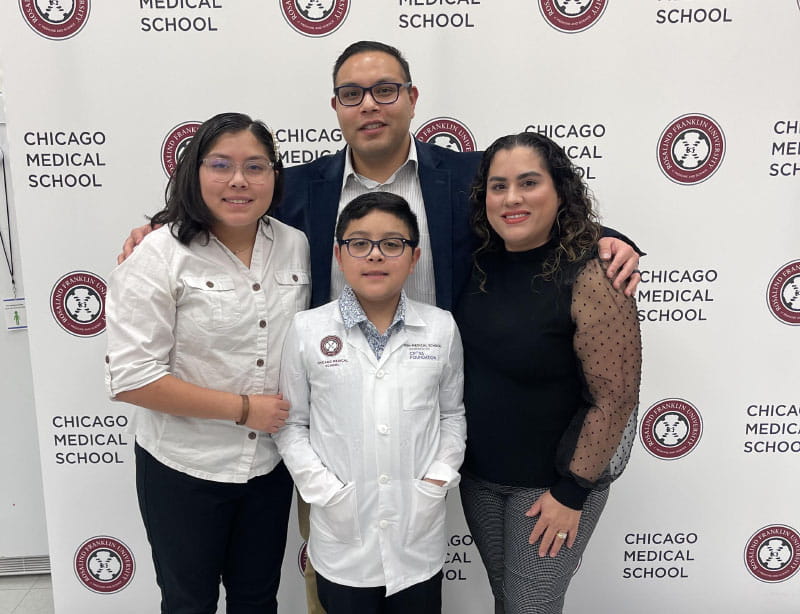Medical student learned lesson at an early age: 'Health goes beyond medicine'
By Tate Gunnerson, American Heart Association News

Multitasking is a way of life for Juan Medina-Echeverria. He's a husband, a father of two and a second-year medical student living near Chicago. He often listens to his classes while jogging on the treadmill, running the equivalent of 6 or 7 miles for every hourlong lecture. "I'm killing two birds with one stone," he said.
Exercise wasn't very accessible during his childhood in his native San Francisco Bay Area. The lower-income community where he grew up lacked amenities such as tracks, basketball courts or public parks.
"It was hard to find a place to exercise in a safe manner," he said. "I battled with my weight my whole life."
Juan's parents, who were undocumented immigrants, also urged him and his two siblings to keep a low profile and avoid activities such as sports, which might attract unwanted attention. His parents worked minimum-wage jobs and didn't have health insurance. Because they were not financially stable, they often chose cheaper, processed foods over healthier options. Juan said this contributed to his father's high blood pressure diagnosis in his 30s. His mother was recently diagnosed with Type 2 diabetes.
"We knew it was an issue, but we didn't have the knowledge to talk about it because there was nobody to lead the discussion," he said. "Health goes beyond medicine. It starts at the community level."
That became clear to him at an early age. When Juan was in grade school, his father delayed treatment for a facial droop because he was uninsured. Increasingly concerned, Juan consulted a medical school textbook at school and wondered if his father might have Bell's palsy, a nerve disorder that can cause facial paralysis.
He finally convinced his father to seek treatment, translating as the doctor confirmed his amateur diagnosis. "It was cool and fun," Juan said. "Like a puzzle."
The feeling inspired Juan to pursue medicine, a journey that began in high school when he became a certified nursing assistant. He began taking pre-med courses in college but put them on hold when his wife became pregnant with their first child. Instead, at 19, he earned his nursing license and continued taking classes, ultimately graduating with a degree in public health/epidemiology from the University of California, Berkeley. He went on to earn a master's in biomedical sciences, and in 2021, he enrolled in Chicago Medical School at Rosalind Franklin University, a private institution in the city's northern suburbs.

"I bring a different perspective to medicine because I have real-world experience in the hospital," he said. "You worry about the patient, not just the disease. It's the art of medicine."
Keenly aware of such disparities, Juan has sought leadership roles throughout his academic career, serving as the first Mexican American president of his medical school class, as co-president of the Latino Medical Student Association and as a member of the medical school's diversity advisory committee.
He also has been selected as a scholar in the American Heart Association's National Hispanic Latino Cardiovascular Collaborative, a mentoring program that aims to promote the treatment and prevention of cardiovascular diseases and stroke within the Hispanic community.
Hector Rasgado-Flores, a professor in the medical school's department of physiology and biophysics who also serves on the diversity advisory committee, credited Juan's drive, endurance, intelligence and humility for his success. "He is already becoming a role model for his community, and we are very proud to have him at our medical school," Rasgado-Flores said.
Rasgado-Flores hopes Juan – and others like him – will inspire young people in under-resourced communities to pursue careers in health care.
People connect much better to health care professionals who "relate to them either by culture, language or life experiences," Rasgado-Flores said. "The shame of not having enough diversity in medicine and in higher education is that we are losing a very important resource of life experiences, richness in thinking and creativity that comes with those life experiences."
In addition to his leadership roles, in 2022, Juan completed an internship in orthopedic surgery at the Mayo Clinic in Rochester, Minnesota. As a doctor, he hopes to bridge the gap between cardiovascular and bone health. "You can't exercise and live a healthy lifestyle if your bones and muscles aren't working properly," he said.

Eager to educate young people about health care, Juan and his classmates staged a "mini medical school" for dozens of fourth and fifth graders in an under-resourced community in North Chicago. During the weekly program, which ran from November 2021 through February 2022, they showed the kids how to perform CPR and talked about health topics, ranging from heart health to mental health. (Juan's 10-year-old son, Giovanni, participated in a follow-up event.) "It was great to see them laughing and learning in a fun environment," he said.
After the event, children were presented with white medical coats, which, Juan said, symbolize knowledge, purity and trust. "We hope it motivates them to explore careers in medicine, so there is more representation and hopefully better health outcomes for people in underserved communities."





